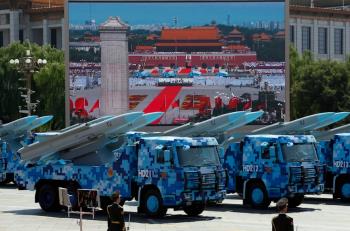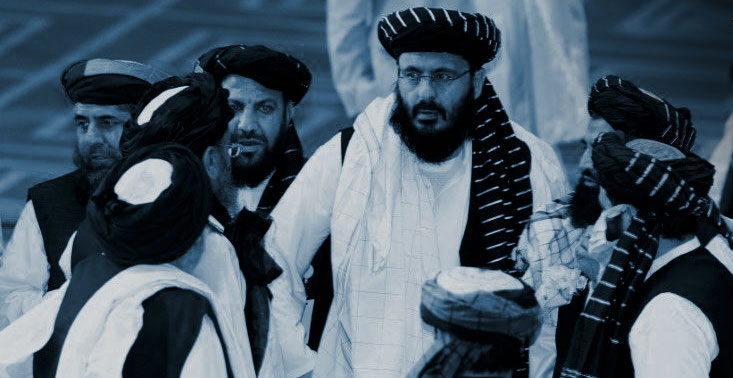Alwaght- Since the Taliban takeover in Afghanistan in August 2021, regional countries have held severe conferences to help settle Afghanistan crisis, and this time they are going to gather in Moscow to seek an exit from the deteriorating crises in the Central Asian country. According to the Russian envoy to Afghanistan Zamir Kabulov, the Moscow Format consultative meeting is scheduled to be held in mid-November. Representatives from China, India, Iran, Pakistan, Kyrgyzstan, Kazakhstan, Tajikistan, Turkmenistan, and Uzbekistan are to attend the conference.
Meanwhile, the important point is that Russia did not invite the Taliban. Moscow has not presented a clear reason for declining to invite the new Kabul rulers, while before the US withdrawal from Afghanistan, the Russians were inviting them to meetings related to Afghanistan.
The interim government of the Taliban reacted to not being invited. The foreign ministry spokesman said that the discussions about Afghanistan are incomplete without the presence of the Taliban in the meeting that is to be held in Russia. Abdul Qahar Balkhi added that the Taliban have been able to interact constructively with neighboring countries, the region and the world in the political, economic and security sectors, but the absence of the Taliban in such meetings can have a negative impact on this interaction.
Moscow warning message
The Moscow meeting is a sequel to the meetings that have been held in the Russian, Iranian, and Pakistani capitals since the Taliban took over the power. In the previous meetings, all the partners had asked the Taliban to form a comprehensive government to overcome the internal crises, and they tied the recognition of the interim government of this group and sending of more aids and the strengthening of bilateral relations to this issue. However, the Taliban have not taken any effective steps to form an inclusive government, and contrary to their claims, no group outside of the groups close to the Taliban are present in the interim government, and in other words, they have formed a monopoly government.
In addition to the political challenges that are striking Afghanistan, since the Taliban assumption of power, this country has been suffering economically, and according to the UN reports, 90 percent of the population is living in poverty, and at the same time possibility of a civil war is growing due to the torture and killing by the Taliban.
Therefore, not inviting Taliban to the Moscow meeting contains the message that as long as this group does not give in to international demands, any expectation of interaction with its government is an illusion. Although the Western countries led by the US do not have the will to recognize the Taliban, and under the pretext of forming a comprehensive government, they want to shrug off responsibility that has been placed on them due to the occupation in Afghanistan for the past two decades, Afghanistan neighbors are genuinely looking for help to this country and if the Taliban can form a government consisting of all Afghan political groups, it will be a step closer to extensive interaction with the neighbors. But if this group wants to resist international demands and continue with its mono-ethnic government, not only will it not receive help from regional states, but also it may be rejected by foreign actors.
Worries about spread of insecurity to Central Asia
Russia, which is roughly leading the regional meetings on Afghanistan, is concerned about spillover of Afghanistan insecurity to the region and is seeking a solution in association with other countries. Although the Taliban argue that they have managed to secure the whole country, evidence shows that the insecurity has worsened and activities of ISIS, a terrorist group the Taliban claim to have contained, have intensified.
Currently in a conflict with the West over Ukraine, Russia is worried about the spread of insecurity in Afghanistan to its southern borders, because the Central Asian republics are highly vulnerable to terrorist threats, and in case of instability in this region, Russia's borders will certainly be threatened. The insecurity of Central Asia in the current situation can be dangerous for the Russians because they will have to engage part of their power in Central Asia in order to fight insecurity, and this provides a good opportunity for the Americans and Europeans to deal hard blows to Ukraine.
The Kremlin leaders believe that the Taliban should fulfill the promises they made and fight terrorism as it poses threats to the territorial integrity of the nations. But to Russia’s disappointment, instead of countering ISIS, the Taliban released hundreds of ISIS prisoners from Afghanistan prisons, setting off a ticking time bomb in the region.
Taliban's way of governing over the past year has seriously worried the Russians. The Secretary of the Security Council of the Russian Federation Nikolai Patrushev recently held that the US created the Taliban, ISIS, and Al-Qaeda to pursue its geopolitical goals. These words did not appeal to the Taliban.
Russia's concerns about the Taliban's rise to power are not irrelevant, because after leaving Afghanistan, the US has been trying to hit Moscow by destabilizing the country. The blocking of $7 billion of Afghanistan assets in Western banks has fueled the economic crisis in Afghanistan while the release of these foreign currency reserves can solve a large part of the country's problems, but the White House officials have no will to solve Afghanistan's crises as they believe that the deeper this country sinks in crisis, the more its repercussions would be on Russia, China, and Iran, and actually Washington can deal blows to its rivals with the lowest cost.
The Russians are worried that the Taliban has secret agreements with the US behind the scenes and can destabilize Central Asia and Russia in return for some promises. Recently, reports talked about a meeting between Taliban officials and the Americans, and this issue has increased suspicion about Washington's plans in this country.
On the other hand, the prevailing of the economic crisis in Afghanistan will force millions of Afghans to the borders of the neighboring countries and cause a full-scale immigration crisis. In the current conditions, this issue can prove costly as all the regional countries are grappling with problems. The economic predicament also can push the Afghans to plant opium and turn to smuggling of drugs which is a lucrative illegal business. Since all neighbors take impacts from such a situation, they are trying to find solution to Afghanistan crises.
The Taliban know very well that without international community's assistance, they will not be able to solve their many problems, and with regard to the special conditions of Afghanistan, any country that provides more aid to the Taliban government in the current conditions will have more influence in the country's politics. Therefore, if the Americans have long-term plans to deal blows to Russia, perhaps they will revise their stated policies towards the Taliban government and by injecting some cash into Afghanistan's economy, they will draw the Taliban to their side and use it as a leverage against their rivals. This is why the Russians are worried about secret agreements between Washington and the Taliban, and not inviting the group to Moscow meeting is a meaningful reaction to its movements.
In the Moscow consultative meeting, Russia and Afghanistan's neighbors would seek to pressure the Taliban government for fundamental political reforms, as they know that continuation of the country's instability would increase their costs and generate new crises that would take years to contain.



























